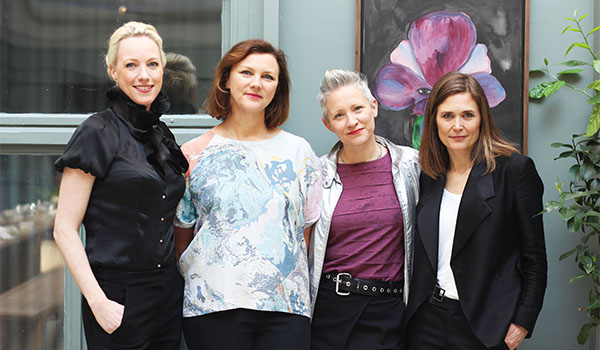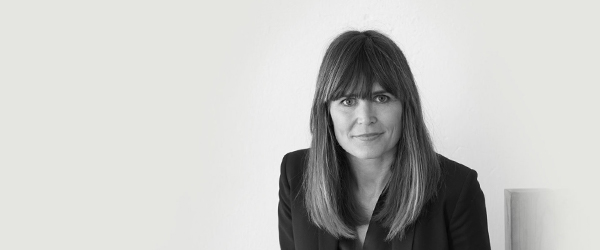FILIPPA K & MISTRA FUTURE FASHION IN A GROUNDBREAKING NEW INDUSTRY RESEARCH PROJECT FOR THE FUTURE OF FASHION

Mistra Future Fashion and Filippa K have initiated ‘Circular Design Speeds’, led by Professor Rebecca Earley & Dr. Kate Goldsworthy of University of the Arts London. The 2 year project includes researching, developing and testing of new strategic design for 100% circular fashion garments. The idea is to implement insights from Mistra Future Fashion in a real fashion industry context, focusing on speed of use and maximizing fabric value retention in products. For Filippa K this is a key approach; exploring a process enabling them to become circular, and much more sustainable, by 2030.
“We want to be able to enjoy fashion and update our wardrobes in a conscious way. That is what the project – Circular Design Speeds – is about. We will develop circular garments where all environmental impacts and aspects during a full life cycle are taken into account and optimized based on a pre-determined life length.”
– Elin Larsson, Sustainability director Filippa K

Elin Larsson, Sustainability director Filippa K
Understanding the lifecycle of a product is key for creating a sustainable industry; the future is dependent on a new definition of ‘fast’ and ‘slow’ fashion. The future of fashion relies on the fashion brands, being able to offer more sustainable products and services, supporting more conscious consumer behavior. The idea to have a multi-speed wardrobe with a mix of short-life and long-life garments, new and second hand, rented or borrowed, is realistic, practical, and sustainable. That is why the products, defined by their lifecycle and speed of use, is central in this project.
The project – Circular Design Speeds – will be an industry-embedded pilot study, exploring the impact of different speeds of fashion with the aim to generate commercial garments. These will consciously consider and optimize the life of fabric, production processes and business models through a holistic design process. This may be through extending the life of an existing garment by design interventions over time, or through the development of hyper-recyclable short-life products, enabling efficient recovery of virgin fabrics over multiple lifetimes. These commercial garments will be Filippa K’s next Front Runners. In order to benefit the broader industry, the key insights from the project will be continuously shared in unique Value to Others seminars, which will bridge ‘circular design research’ to the company context and help create a deeper understanding for others in the industry. There will be three seminars delivered through 2017 and in the Spring of 2018.
“As academic researchers we see this industry-focused project – Circular Design Speeds – essential to developing new knowledge and understanding in the area of ‘fast’ and ‘slow’ fashion textiles. Clothes we often hope to be slow end up being fast, and even vice versa – yet current materials are all essentially slow; they take time, water, energy, chemicals and valuable resources to make. We want to work with a brand to fully explore whether designing for product recovery and speed can help us make fashion textiles to match our different paces of life.”
– Professor Rebecca Earley

Professor Rebecca Earley
The project is expected to generate meaningful and industry-aligned insights towards a ’systemic change’ in the fashion industry. The basis of the research emerged from the researchers design projects from TED (UAL): Textile Toolbox during phase 2 with the prototypes Ultra Fast Forward (paper textiles), Digital Seamstress and Fast Refashion. The project will also include other researchers (from Supply Chain, User and Recycling fields) reviewing the scientific basis of the ideas, operational logistics and business case. For the first time design decisions will be made with quantified scientific LCA data guiding us through the process, utilizing the data base from Sandra Roos (Swerea) that was finalized in January 2017
“Circular Design Speeds is the ultimate project where theory from years of research will be implemented and tested in an industry context, with many of our partners involved. The output will be the legacy of Mistra Future Fashion and all that its partners are trying to achieve.”
– Sigrid Barnekow, Program Director, Mistra Future Fashion



